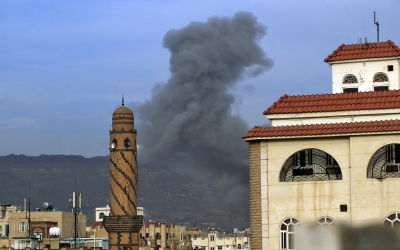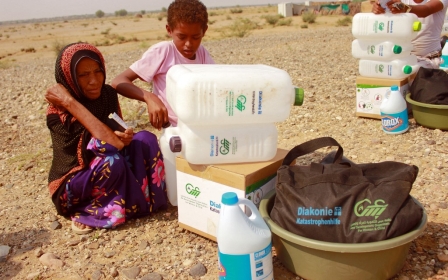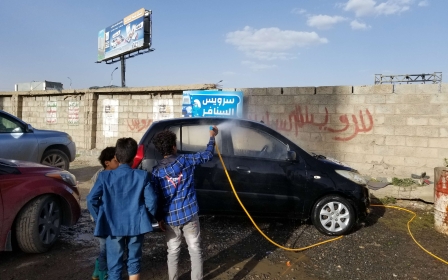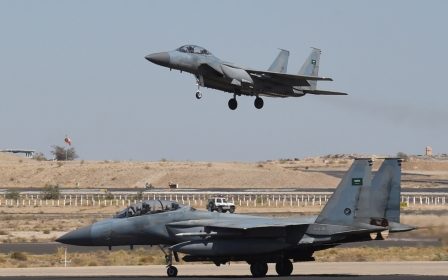Donors slash funding to Yemen by half to 25 US cents a day per person
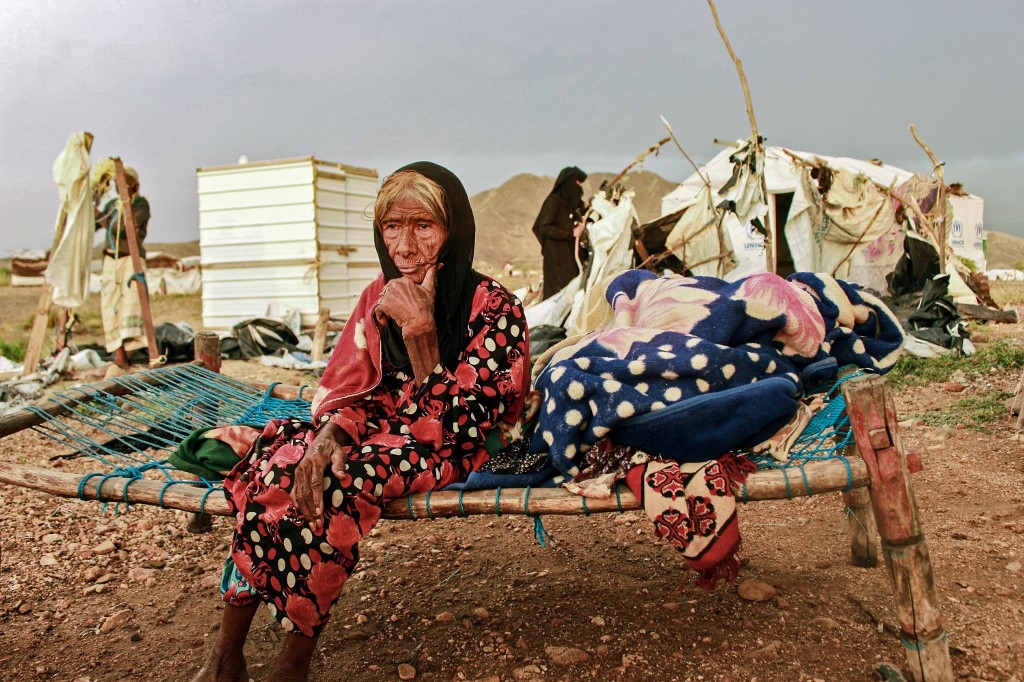
The international community has donated an average of 25 US cents per day for each of the 24.3 million Yemenis in need of assistance this year, less than half the amount given in 2019, Oxfam said on Tuesday.
The Nairobi-based charity said in a statement that as 2020 edges closer to an end, the international community had donated only $1.6bn compared to last year's total of $4.06bn and $5.17bn in 2018.
The "dramatic" drop in funding resulted in more than a third of the UN's humanitarian programmes being cut back, with some completely shut down between April and August.
'Yemenis cannot afford aid to be cut, people need more help to survive, not less'
- Muhsin Siddiquey, Oxfam
Cuts include a reduction in services at 300 health centres and in food distributions across the country, the group said.
Despite an increase in Yemenis in need, almost every country has given substantially less money this year, according to Oxfam, including the US, the UK, Saudi Arabia and the UAE - four of the biggest donors.
New MEE newsletter: Jerusalem Dispatch
Sign up to get the latest insights and analysis on Israel-Palestine, alongside Turkey Unpacked and other MEE newsletters
"While the economic fallout unleashed by the Covid-19 pandemic has affected every corner of the globe, in Yemen millions are on the brink of starvation. Yemenis cannot afford aid to be cut, people need more help to survive, not less," said Muhsin Siddiquey, Oxfam's Yemen country director.
"Yemenis had already suffered the hardships of more than five years of conflict before the pandemic wreaked further havoc, leaving them acutely vulnerable to disease and hunger. The international community urgently needs to step up funding for Yemen as well as honouring the pledges already made so that people can get the lifesaving aid they need," Siddiquey added.
Oxfam also warned that prices in Yemen had risen, so donations were not going as far as they once did. The price of flour increased by 22 percent in the last year, with onions up by 35 percent and sugar increasing by 48 percent.
"In Yemen, 25 cents would buy 200 grams of kidney beans, or three eggs, or 200 millilitres of cooking oil," the statement highlighted, demonstrating how little the international aid collected so far has been able to provide.
'Devastating impact of heavy fighting'
In addition to strains caused by the coronavirus pandemic and rising prices, Oxfam warned that the destruction of homes and basic infrastructure as well as a lack of jobs and continuous cuts to public servants' salaries had exacerbated the dire situation, forcing millions to rely on humanitarian aid in order to access essentials like food, clean water and healthcare.
Oxfam also criticised the UK for its arms sales to Saudi Arabia, which has been leading a military coalition against Iran-backed Houthi rebels.
The UK has licensed almost $7.54bn worth of arms to members of the coalition, according to Oxfam.
"The UK should stop cashing in on this appalling humanitarian crisis and instead put people's lives above arms manufacturers' profit," Siddiquey said.
The UK is second in arms sales to the Saudi-led coalition only to the US. Last year, the Stockholm International Peace Research Institute (SIPRI) found that Saudi Arabia had become the world's top arms importer, with an increase of 192 percent since 2014.
During the same period, US arms exports grew by 29 percent, with more than half of its shipments (52 percent) going to customers in the Middle East, mainly Saudi Arabia.
Also on Tuesday, the International Organization for Migration (IOM) warned that northeast Yemen had seen the brunt of this year's fighting, with more than 90,000 people displaced around the Marib governorate since January.
"We are hugely concerned about the devastating impact of heavy fighting getting closer to areas heavily populated with civilians - displaced people, locals and migrants," said Christa Rottensteiner, IOM's Yemen chief of mission.
"While IOM teams and partners are working hard to respond, they are facing an uphill struggle, given the amount of suffering. Displaced families are in dire need of safe shelter, clean water, sanitation and food support," Rottensteiner said.
An estimated 70 percent of those displaced in the area are in need of shelter, as they are living in makeshift tents and "overcrowded and dangerous abandoned buildings", the group added.
Rottensteiner warned that if fighting does not cease soon, hundreds of thousands of people could be forced to flee, many of whom would be running from the conflict in Yemen for the second, third or fourth time.
"And more areas would become unreachable for humanitarian organizations," she added. "Meaning vulnerable communities would be left without even the most basic support."
Middle East Eye delivers independent and unrivalled coverage and analysis of the Middle East, North Africa and beyond. To learn more about republishing this content and the associated fees, please fill out this form. More about MEE can be found here.


